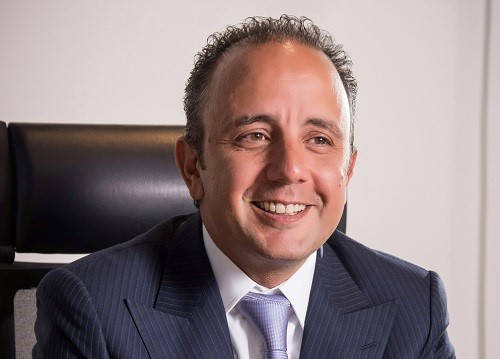 06-10-2020
06-10-2020
Industry will never get back to a pre-COVID ‘normal’: IGI’s Waleed Jabsheh

 Insurance Alertss
Insurance AlertssIndustry will never get back to a pre-COVID ‘normal’: IGI’s Waleed Jabsheh
From an operational point of view, the re/insurance industry is unlikely to ever return to the ‘normal’ it was accustomed to before the COVID-19 pandemic.
This is according to Waleed Jabsheh, President of IGI, who discussed the challenges of the coronavirus crisis in a recent interview with Reinsurance News.
“This experience has taught us a lot of things,” he said. “I think this has proven to companies that people can work from home and that business can continue to operate without people being physically in the office.”
Many companies, particularly the larger ones, will now look at the new reliance on remote working as a way to cut costs by reducing office space and travel expenses, Jabsheh added. For instance, more meetings will be held over communications platforms like Zoom and Microsoft Teams rather than having people get on an airplane for face to face meetings.
“I think over time we will recover a little bit and get closer and closer to the normal that we’re used to,” the IGI President conceded. “But we’ll never get back to it in full, in my opinion.” IGI itself was able to transition from working at the office to working from home with practically no disruption in the continuity of its business, Jabsheh said.
While this supports the case for re/insurers to find new working models for employees, Jabsheh added that companies need to be cautious about the extra mental strain being put on their workforces. “A big focus area for us has been the well-being of our employees because these are stressful times and working from home is not what people are used to,” he noted. “In an environment like this, stress levels can be high and mental health can be at risk.”
Restrictions to in-person interactions have also forced the market to rely more heavily on digital capabilities, with some analysts suggesting that the pandemic could accelerate technological transformation in the industry. “The digital advancement and transformation was already there. People who didn’t take it seriously enough have obviously had to take it a lot more seriously in the last few months,” Jabsheh told Reinsurance News.
“In these times, technological infrastructure has proven to be vital. And those who did not have that will have obviously struggled.” In addition to the pandemic, IGI has also had to adapt its business model in recent months following its business combination with Tiberius, which resulted in the public listing of IGI.
Jabsheh acknowledged that becoming a public company has brought a lot more intensity for IGI in terms of shareholder requirements, legal regulatory compliance and risk reporting, but said that its positive view of the move had not been altered by developments with the pandemic. “It was a good move for us,” he said. We’ve been a private company for almost 20 years, and the plan was always to go public at some point in the life of IGI. We did look at a public listing in previous years but decided not to proceed. Then this opportunity presented itself and we felt it was beneficial to the company, to the shareholders, and to the employees to take this step.”
“Being a public company increases our profile, puts us out there playing with the big boys, gives us more credibility, ultimately gives our shareholders liquidity, and gives us quicker and cheaper access to capital as and when we may need it,” Jabsheh concluded.
Source: Reinsurance News
